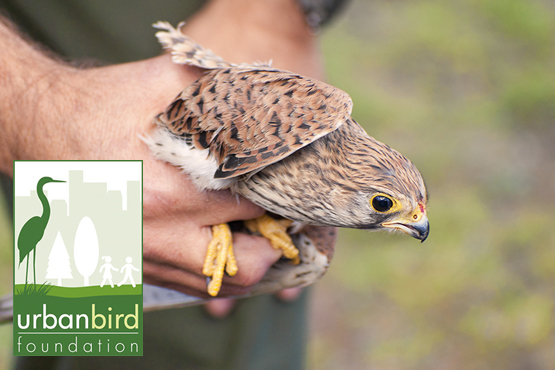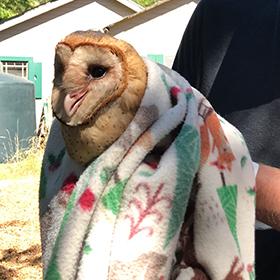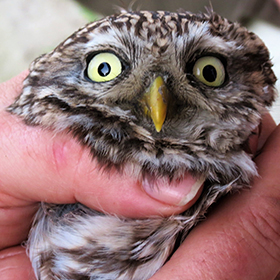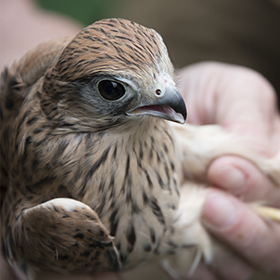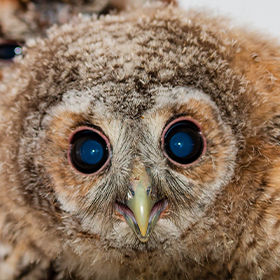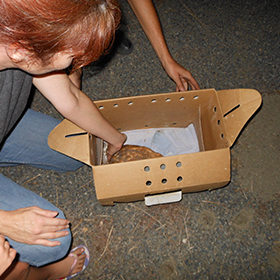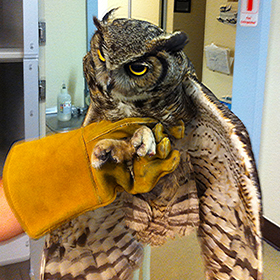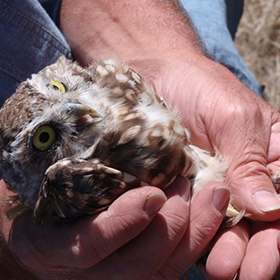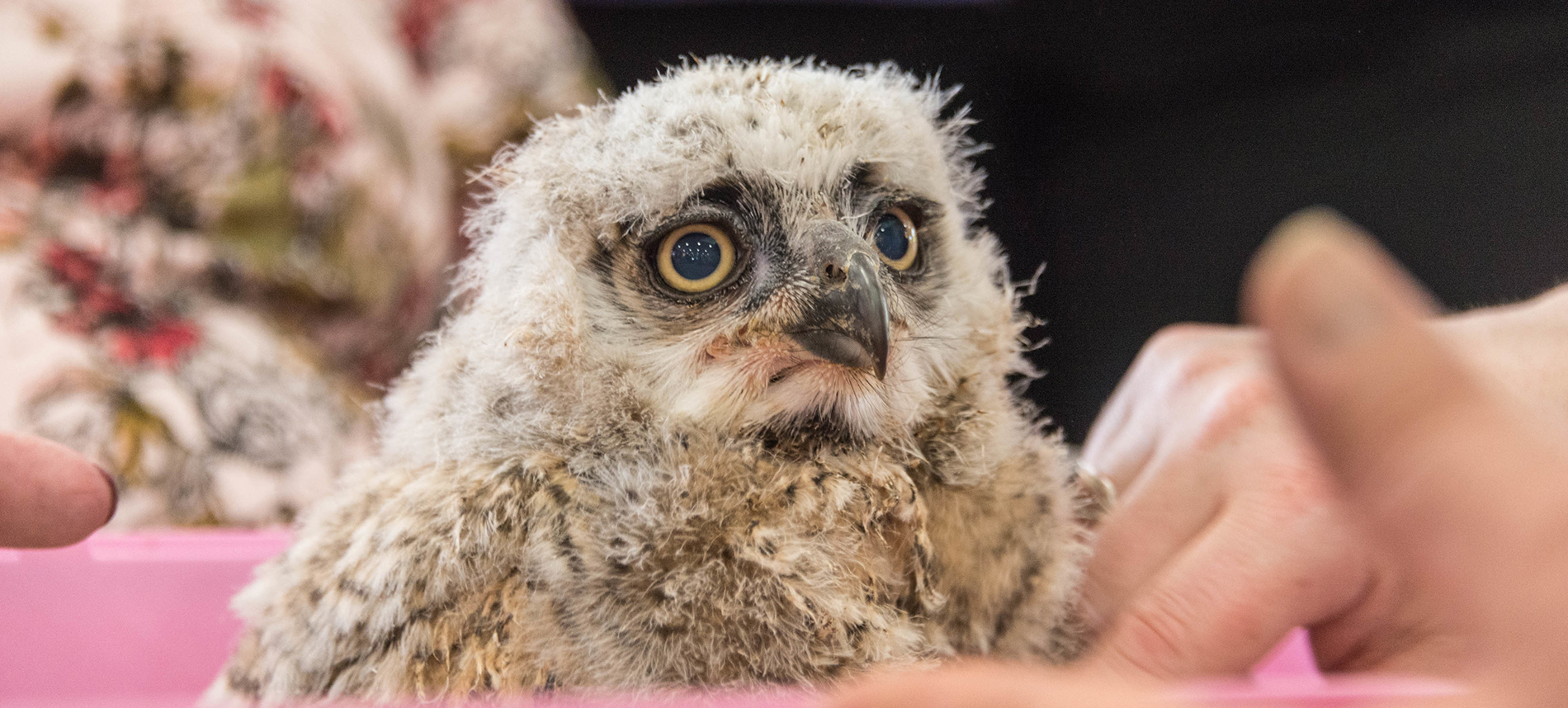
A Program of Urban Bird Foundation
Find your nearest bird rescue, hospital and rehabilitation center
HAVE YOU FOUND AN INJURED BIRD?
If you’ve found a sick, injured, or orphaned bird, it is imperative that you quickly find a qualified bird rescue organization, wildlife rehabilitator, or wildlife hospital near you. Urban Bird Foundation asks that before you pick up any possible baby, orphaned, sick or injured bird, please make sure the animal truly needs your help. Here are some helpful tips before you rescue a bird:
Young Birds May Be Fledging
- Young birds about to fledge their nests may be seen on the ground, in shrubs or on low tree branches.
- These fledglings may simply be learning to fly, which is a normal part of growing up and leaving their nest.
- Unless fledglings are in immediate danger (e.g. found in or near a street, on the ground in your backyard when you have dogs or cats), they should not be moved. If you must move the bird to prevent injury or death, please relocate to a nearby safe place such as shrubs or bushes.
- Often times these fledglings are near their nests and may still be attended to by their parents. For example, young crows often leave their nests before they can fly and begin exploring and hunting from the ground. Crow parents are very protective and will continue to feed and safeguard their offspring.
Fallen Nests
- Nests and baby birds that may not be able to survive on their own such as those that are not fully feathered, have their eyes closed, or still have a lot of downy feathers, should be returned to the tree or nest if possible. If the nest has been damaged or you cannot reach the nest, you can use an open container (e.g. Tupperware, a cut milk carton, small basket) to serve as an artificial nest. Place this artificial nest as close to the original nest as possible and in the same tree. The baby bird’s parents will return to find and care for it.
- Artificial nests or even the original nest can be secured to the branch or tree with string or wire. The important part is to ensure the newly created nest is open an accessible for the parents. You can even place the original nest in the carton and/or line it with dry grass, laundry lint, shredded paper, or even torn cloth.
- If the parents do not return to care for the baby birds after 2-3 hours, please contact your nearest bird rescue center, wildlife hospital, or wildlife rehabilitator.
Don’t Forget About Ground-Nesting Birds
- Yes, some birds nest on the ground. Ducks, geese, quail, pheasant, and burrowing owls for example, nest on the ground (or in burrows for burrowing owls).
- If you or your dog find a nest, please do not disturb the nest and leave the area. This will allow the parents to return to tend to the eggs or young.
Sick or Injured Birds
- Sick or injured birds may exhibit the following symptoms: on the ground acting lethargic, has ruffled feathers, is seen limping, dragging a wing, or has obvious wounds, and may be unable to move or fly when approached. Birds found in roads or next to windows may have been struck by a car or hit a window.
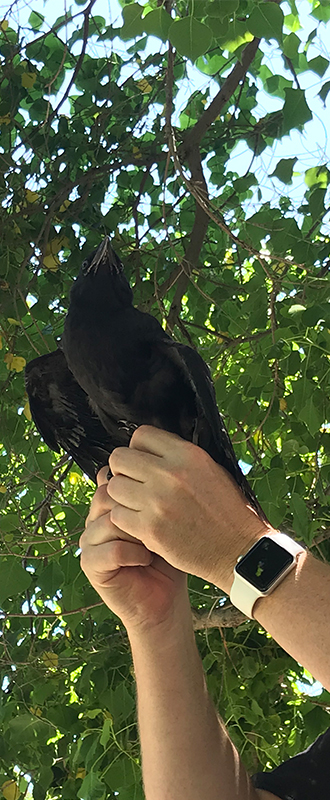
NOW THAT YOU’VE RESCUED A BIRD
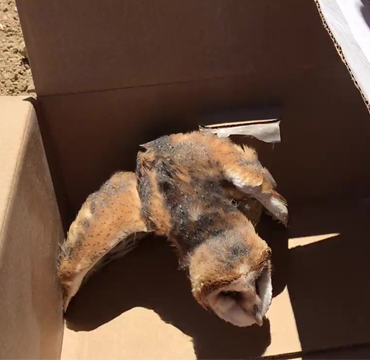
Firstly, please make sure the bird you have found truly needs your help per the above recommendations. If you determine the bird needs immediate attention and veterinary care:
- Do not feed or handle wild birds unless absolutely necessary.
- Place a towel or sheet over the bird and gently place it in a secure container. Use caution as raptors have very sharp talons and a powerful grip. If you are not comfortable handling the bird, contact your local animal control and ask them to provide assistance and deliver to local wildlife hospital.
- Keep the bird in a cardboard box with a lid in a warm, dark, and quiet place until you can bring it to your local wildlife rehabilitator, bird rescue, or wildlife hospital.
- Use our below list to locate your nearest bird rescue organization, wildlife hospital or wildlife rehabilitator.
LOCATE YOUR NEAREST BIRD HOSPITAL
Click your state to locate the nearest bird rescue, wild bird hospital or bird rehabilitator and get injured bird assistance.
Alabama
Alaska
Arizona
Arkansas
California
Colorado
Connecticut
Delaware
Florida
Georgia
Hawaii
Idaho
Illinois
Indiana
Iowa
Kansas
Kentucky
Louisiana
Maine
Maryland
Massachusetts
Michigan
Minnesota
Mississippi
Missouri
Montana
Nebraska
Nevada
New Hampshire
New Jersey
New Mexico
New York
North Carolina
North Dakota
Ohio
Oklahoma
Oregon
Pennsylvania
Rhode Island
South Carolina
South Dakota
Tennessee
Texas
Utah
Vermont
Virginia
Washington
West Virginia
Wisconsin
Wyoming
A Program of Urban Bird Foundation
Urban Bird Foundation has been rescuing birds for over a decade in urban and suburban environments across the United States. With more than 1,000 calls per year, we realized there was a need to provide more resources to caring individuals like you who may have just rescued an injured bird. Since we cannot be everywhere, our goal is to help you locate your nearest wild bird rescue, wildlife hospital, and bird and wildlife rehabilitation center so you can get immediate help.
BirdRescues.org is a community resource to assist anyone who may have encountered an injured bird and to provide immediate help in saving the lives of wild birds.
